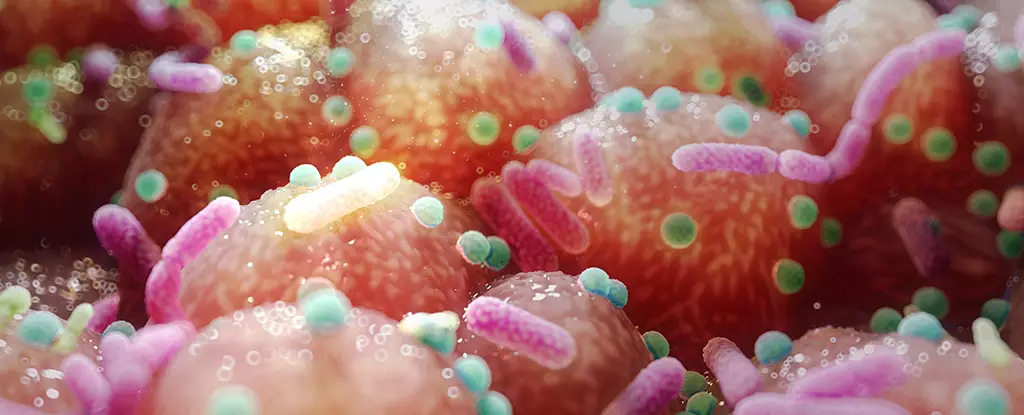Parkinson’s disease is a neurodegenerative condition that affects millions of people worldwide. While the exact cause of the disease is still unclear, researchers have long suspected a connection between the gut and the brain in its development. A recent study has shed light on this link by identifying specific gut microbes that are likely involved in the progression of Parkinson’s disease.
The study found that the changes in gut bacteria communities seen in patients with Parkinson’s disease were associated with a decrease in two essential B vitamins – riboflavin (B2) and biotin (B7). This decrease in B vitamins was linked to a reduction in molecules responsible for creating a healthy mucus layer in the intestines. The weakening of this protective layer may expose the intestinal nervous system to toxins found in our environment, such as cleaning chemicals, pesticides, and herbicides.
The researchers suggest that supplementation of riboflavin and biotin could be beneficial for a subset of Parkinson’s disease patients, particularly those with gut dysbiosis. Previous studies have shown that high doses of riboflavin can improve motor functions in patients, especially when combined with dietary changes like eliminating red meat. This indicates that B vitamins may play a crucial role in mitigating the damage caused by Parkinson’s disease.
Ensuring that patients have a healthy gut microbiome may also offer protection against the progression of Parkinson’s disease. Additionally, reducing exposure to toxic pollutants in the environment could help reduce inflammation in the nervous system and prevent the accumulation of harmful molecules in the brain. Each individual may have a unique combination of factors contributing to their Parkinson’s disease, so personalized assessments and interventions will be necessary.
Further research could involve analyzing the gut microbiota of patients with Parkinson’s disease or conducting fecal metabolite analysis to identify specific markers associated with the disease. By understanding the intricate relationship between gut microbes, B vitamins, and environmental factors, researchers may be able to develop more targeted therapies for Parkinson’s disease. The complexity of the disease necessitates a multifaceted approach to treatment and prevention.
The recent study highlighting the role of gut microbes and B vitamins in Parkinson’s disease opens up new avenues for understanding and potentially managing this debilitating condition. By focusing on the connection between the gut and the brain, researchers may uncover novel strategies for improving the quality of life for patients with Parkinson’s disease.


Leave a Reply